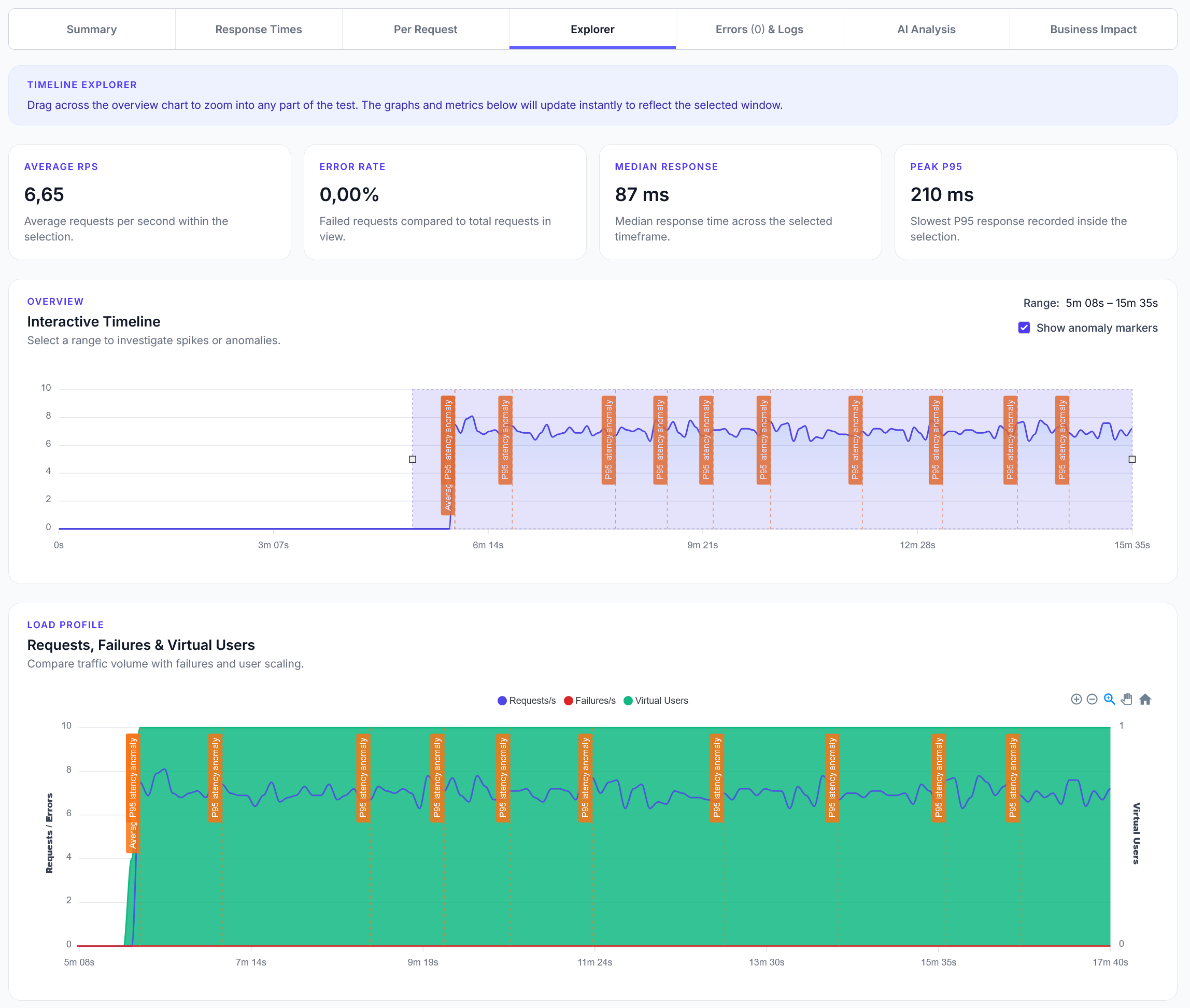
Explorer reports addition
We have added a new Explorer feature to reports, with a timeline scrubber and easy anomaly detection.
A guide on how to load test a GraphQL based API, featuring the SpaceX API as an illustrative example.
LoadForge can record your browser, graphically build tests, scan your site with a wizard and more. Sign up now to run your first test.
LoadForge makes testing GraphQL APIs straightforward by utilizing standard HTTP POST requests to send GraphQL queries.
This guide demonstrates how to create a load test to query the missions from the publicly available SpaceX GraphQL API. The examples provided here can be adapted to test any GraphQL API, including authentication scenarios.
Here's a fundamental example showing a standard GraphQL query that requests the mission IDs and names from the SpaceX API:
{
missions {
id
name
}
}
The following example shows how to implement this query for use in a LoadForge test, demonstrating the straightforward integration of GraphQL queries.
import time
from locust import HttpUser, task, between
class QuickstartUser(HttpUser):
wait_time = between(3, 5)
@task(1)
def index_page(self):
query = '''
{
missions {
id
name
}
}
'''
response = self.client.post(
"/graphql",
name="GraphQL",
json={"query": query }
)
Many GraphQL APIs require authentication. The following example shows how to set custom headers for authentication:
response = self.client.post(
"/graphql",
name="GraphQL",
headers={
"Accept": "application/graphql",
"Authorization": "<Authorization-Token>"
},
json={"query": query}
)
For dynamic authorization token retrieval, the on_start method can automate this process, ensuring all requests include the required authentication header:
def on_start(self):
# Send a login request
response = requests.post("http://mysite.com/login", {"username": "user", "password": "pass"})
# Extract the "token" from the response header
self.client.headers.update({'Authorization': response.headers.get('token')})
# locust.py
import time
from locust import HttpUser, between, task
class GraphQLUser(HttpUser):
wait_time = between(1, 3)
host = "https://api.spacex.land/graphql"
def on_start(self):
# Optionally disable SSL verification
self.client.verify = False
@task
def fetch_missions(self):
query = """
{
missions {
id
name
}
}
"""
self.client.post(
"/",
name="GraphQL Query",
json={"query": query}
)
LoadForge is built upon the robust foundation of Locust, which means that if you're already a user of the open-source Locust tool, you can directly use this script in your tests. If you're considering upgrading your testing capabilities, think about importing your Locust script to LoadForge and make the most out of your load testing efforts!